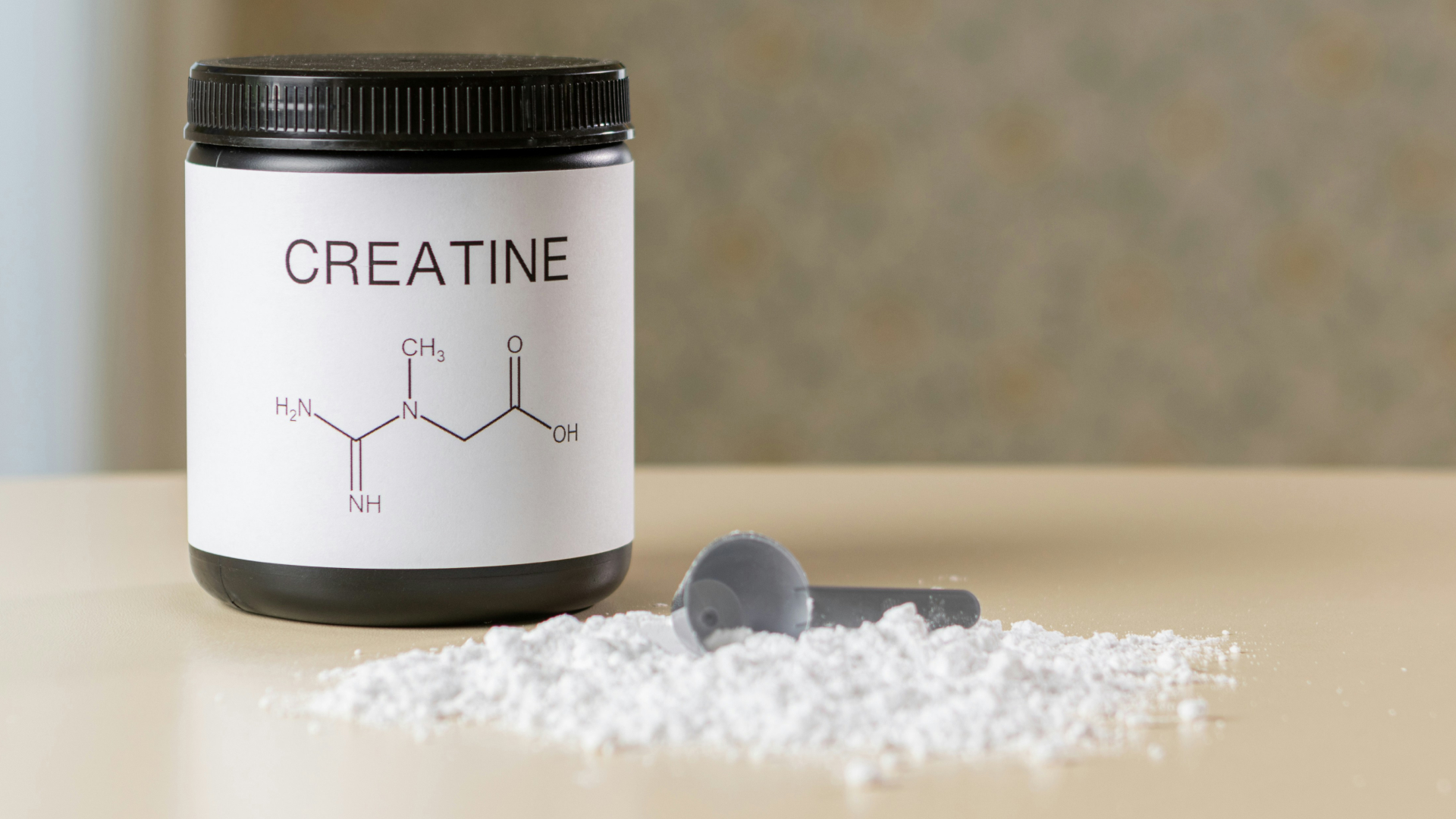
Few supplements have stood the test of time like creatine. Once known primarily for its muscle-building powers, creatine is gaining renewed popularity and attention for its potential cognitive benefits.
“Creatine is simple, it’s safe, and it’s been backed by decades of research in the muscular realm,” says Mike Traber, a Future performance coach. “If you want to get the most out of your recovery, it’s important to understand how creatine works in the body.”
Creatine is a naturally occurring compound found primarily in muscles and brain tissue. It supports muscle contraction and provides a steady supply of energy needed for peak performance, especially during intense exercise.
“Creatine helps whatever area of your body is under stress,” says Traber. “If you train hard, it fuels your muscles. If you’re mentally taxed, it helps your brain get through the day a little better.”
You can get small amounts of creatine from foods like red meat, pork, and fish, but not enough to see measurable effects. That’s why most athletes turn to supplements, with creatine monohydrate being the most researched and reliable option for building muscle.
For some individuals, other forms of creatine may be easier on the digestive system. Traber notes that many of his personal training clients experience gastrointestinal discomfort with monohydrate but tolerate creatine hydrochloride (HCl) without issue.
Although creatine HCl can help reduce bloating for certain users, it does not provide superior performance benefits compared with monohydrate, despite some marketing claims.
“There hasn’t been a single legitimate study showing that other forms of creatine offer superior benefits over monohydrate,” Traber notes.
Creatine’s benefits are tied to ATP (adenosine triphosphate), the body’s primary energy source. When you exercise intensely, ATP breaks down into ADP (adenosine diphosphate), releasing energy that your muscles can use.
“Having free creatine stores in your body is helpful because they can bind to that phosphate molecule and rebind with ADP to replenish ATP. This gives you more juice to continue fueling your efforts,” Traber says.
That extra energy makes creatine especially useful for short, explosive efforts like sprinting, heavy lifting, or HIIT workouts.
“You’re basically topping off your phosphocreatine stores, which allows you to train a little harder, recover a little faster, and maybe think a little sharper,” he says.
Whether you’re lifting for performance or physique, multiple studies confirm that creatine supports stronger muscles and increased lean mass.
“Taking creatine, you’ll notice immediate strength gains, especially in compound lifts, because you’re now able to repeat that action with more energy,” Traber explains.
Within a few weeks, users often gain one to two kilograms of lean mass. After several months, this can increase to two to four kilograms, with long-term supplementation helping preserve muscle as we age.
But Traber stresses that creatine isn’t magic: “You have to combine it with proper nutrition—sufficient protein, carbohydrates, and calories—as well as hard training.”
He’s noticed its effects firsthand. “If I have an hour-long session, I start to feel fatigued around the 40-minute mark,” he says. “When I’m on creatine, that time to fatigue is delayed by about 15 to 20 minutes. The quality of work stays high for longer.”
Creatine is often linked to muscle performance, but new research indicates it might give your brain a boost, too.
“In the limited research that's been done on cognitive function, creatine seems to improve cognitive performance when you're under significant stress and sleep-deprived, particularly in working memory and reaction time,” Traber says.
These effects are more pronounced in vegetarians who have a lower baseline level of creatine, Traber explains, and less noticeable in well-rested people. Still, he cautions against online exaggerations.
“Some influencers say taking 25 grams of creatine is better than a good night’s sleep. I have no idea where they’re getting that from,” he says. “Creatine helps mitigate some of the effects of poor sleep, but it doesn’t completely negate them.”
For most people, the ideal dose is five grams per day, according to Traber. Athletes training multiple times a day may benefit from 10 to 15 grams daily during heavy training blocks.
On days of poor sleep or high cognitive demand, 20 to 25 grams can temporarily boost focus. Traber warns against using that amount regularly, however, as the kidneys filter out excess creatine.
After establishing the correct dose, consider your fitness goals. Taking creatine before or after a workout can yield different benefits.
“Pre-workout, you’ll get more performance enhancement because creatine is more readily available,” he says. “Post-workout, it’s a recovery tool. You’re starting the recovery process faster, and that’s where the gains are made.”